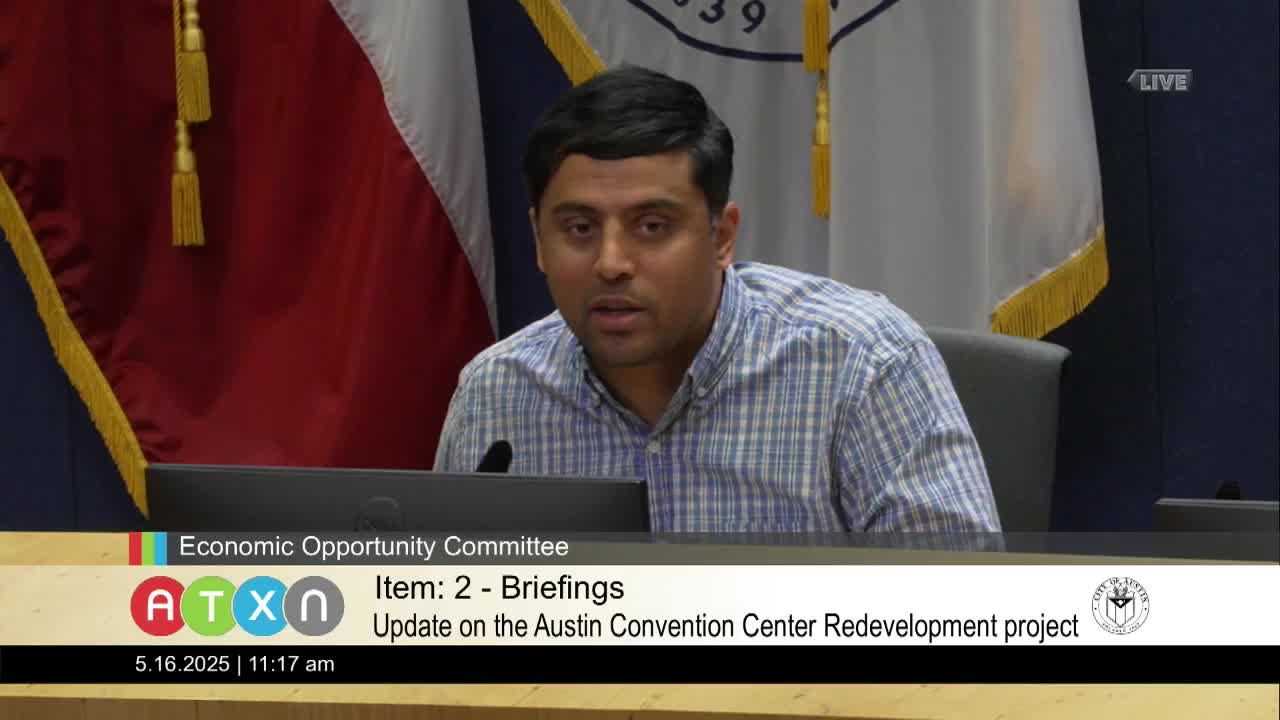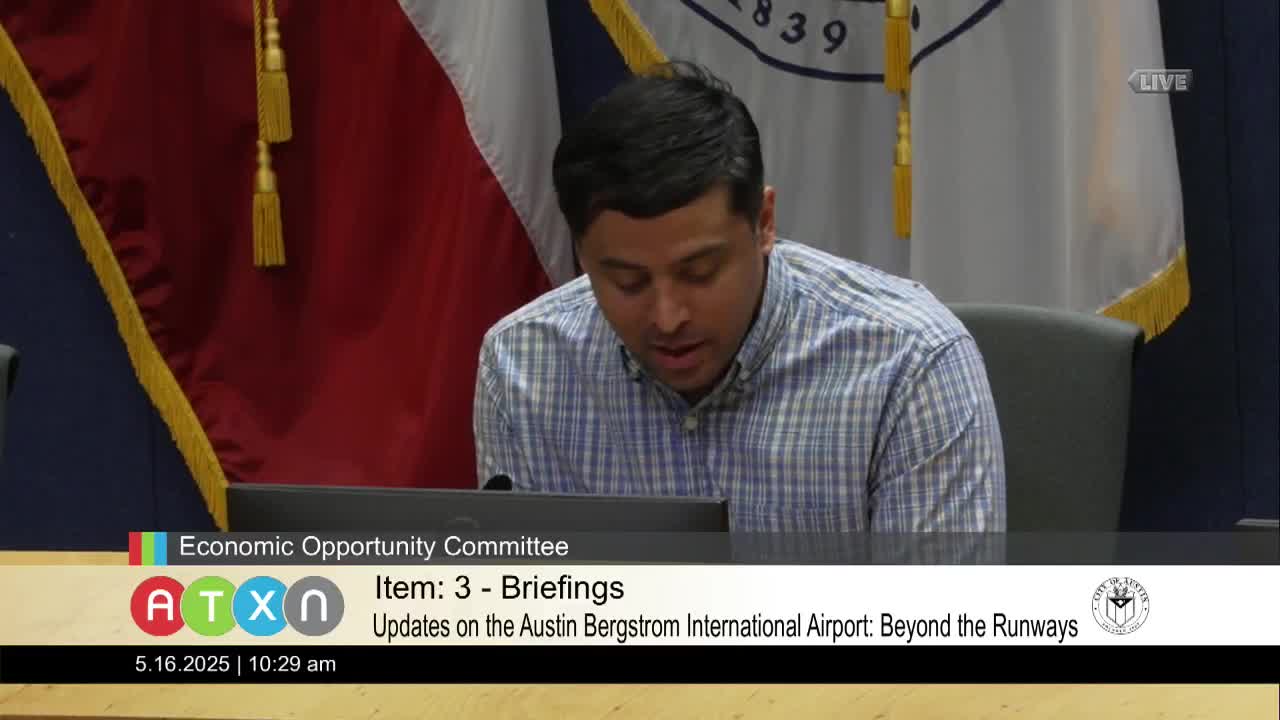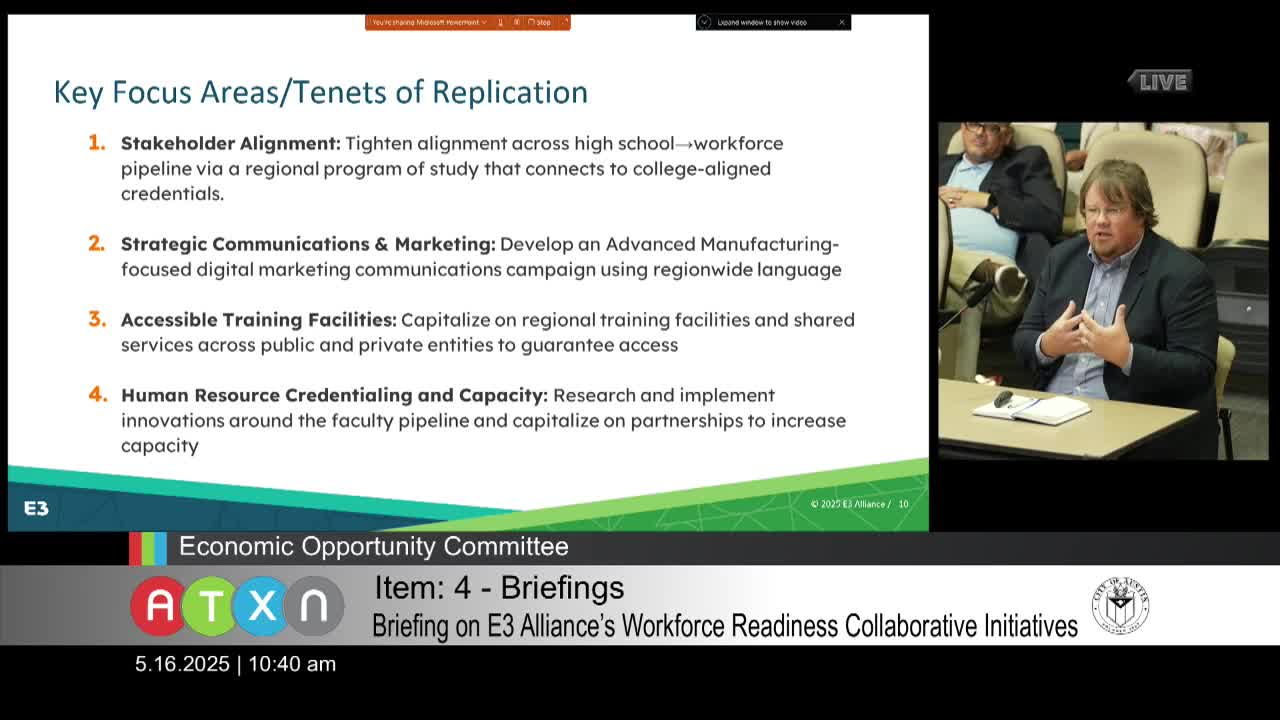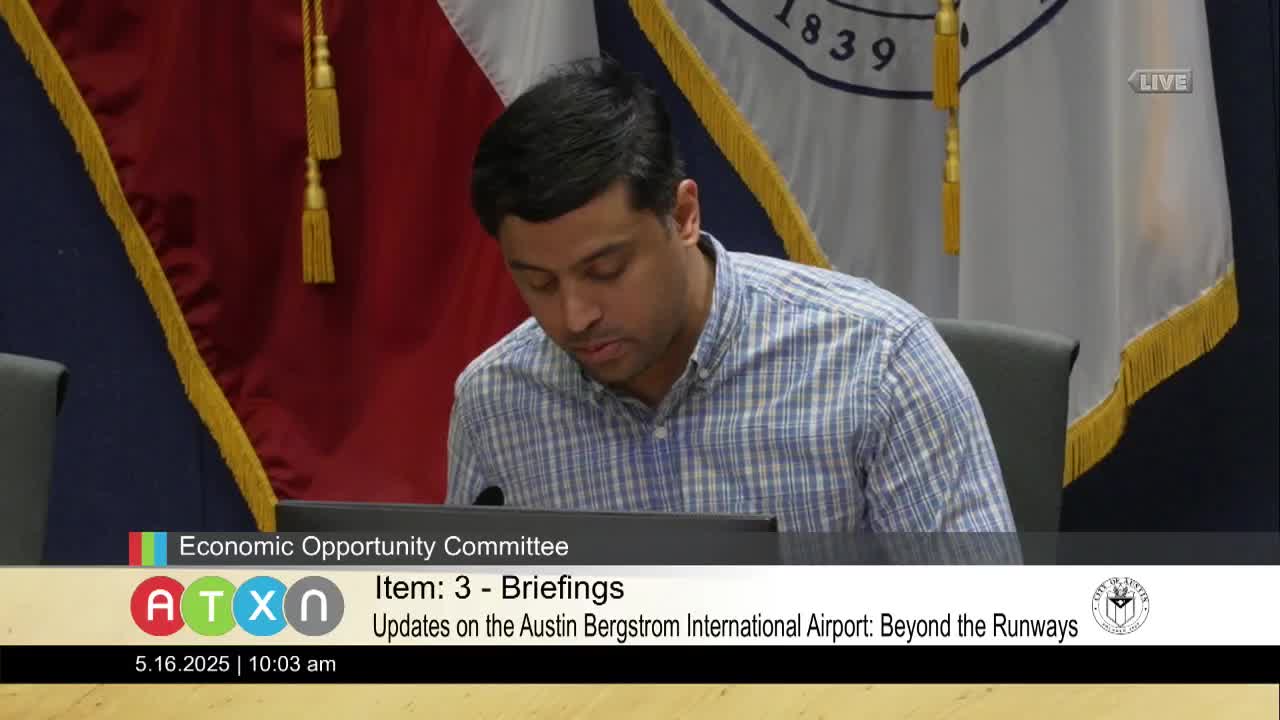Article not found
This article is no longer available. But don't worry—we've gathered other articles that discuss the same topic.

City staff to roll out high‑quality childcare fee waivers; council may need action to extend to new centers

e3 Alliance outlines cradle‑to‑career manufacturing pipeline; partners report 3,300 guaranteed enrollments in first year

Austin Convention Center redevelopment progresses; city says project on budget and on track to reopen in 2029

